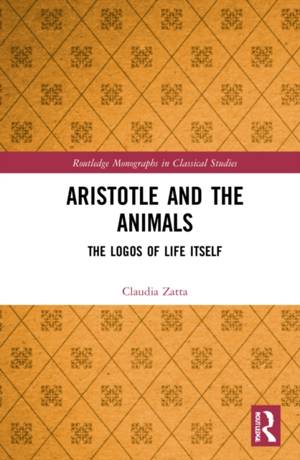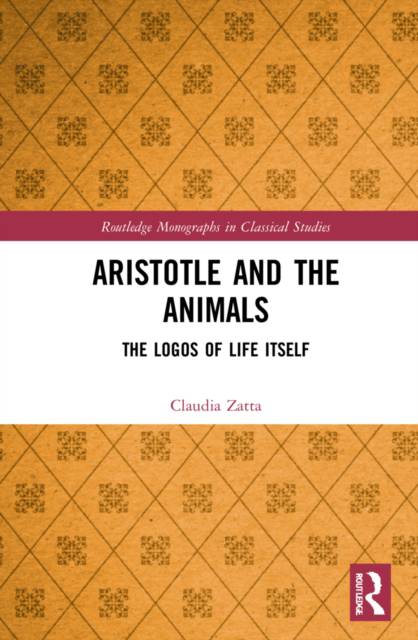
- Retrait gratuit dans votre magasin Club
- 7.000.000 titres dans notre catalogue
- Payer en toute sécurité
- Toujours un magasin près de chez vous
- Retrait gratuit dans votre magasin Club
- 7.000.000 titres dans notre catalogue
- Payer en toute sécurité
- Toujours un magasin près de chez vous
Description
With a novel approach to Aristotle's zoology, this study looks at animals as creatures of nature (physis) and reveals a scientific discourse that, in response to his predecessors, exiles logos as reason and pursues the logos intrinsic to animals' bodies, empowering them to sense the world and live.
The volume explores Aristotle's conception of animals through a discussion of his ad hoc methodology to study them, including the pertinence of the soul to such a study, and the rise of zoology as a branch of natural philosophy. For Aristotle, animal life stems from the body in the space of existence and revolves around sensation, which is entwined with pleasure, pain, and desire. Lack of human reason is irrelevant to an understanding of the richness of animal life and cognition. In sum, the reader will acquire knowledge of the "animal as such," which lay at the core of Aristotle's agenda and required a study of its own, separate from plants and the elements.
This book is intended for students of the history of science, ancient biology, and philosophy and all those who, from different fields, are interested in animal studies and the human-animal relation.
Spécifications
Parties prenantes
- Auteur(s) :
- Editeur:
Contenu
- Nombre de pages :
- 238
- Langue:
- Anglais
- Collection :
Caractéristiques
- EAN:
- 9780367409494
- Date de parution :
- 31-03-22
- Format:
- Livre relié
- Format numérique:
- Genaaid
- Dimensions :
- 150 mm x 236 mm
- Poids :
- 476 g







